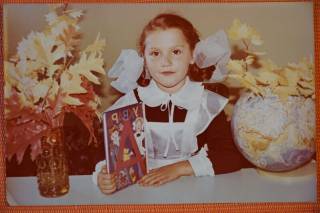
I was born and raised in the Westernmost part of the USSR and continued my education across the border in Finland where I currently live and hold an academic tenure. I come from an ethnically mixed family and I have always experienced my identity as multi-layered, unstable, and vulnerable due to frequent questioning by the outsiders. Despite my multicultural background and the fact that I have lived in Finland for most of my life, I am perceived as uniculturally Russian, while in Russia, where I do most of my fieldwork, my living abroad and affiliation with a “Western” university may cause uncertainty and discomfort as people are unable to position me clearly as either Russian or foreign. It is perhaps due to this feeling of “out-of-placeness” that I became interested in the questions of citizenship and national identity, and their changes in the aftermath of the disintegration of the USSR. As a child growing up during perestroika, I remember personally how the opening up of the Soviet society – particularly the removal of taboos on the discussion of the crimes committed by the Communist Party – caused collision among students and school teachers. That is perhaps when my overall interest in the relationship between schooling and society was seeded. I remember my childhood as happy and carefree (even though I had to accompany my Babushka in long cues for dairy and meat products!). I remain puzzled about the intellectual wealth of my proximate environment. I grew up with incredible books, frequent visits to theatres and concerts; I overheard my parents’ political discussions and observed them developing the most incredible ties of friendship devoid of any hint of ideological content. It is the complexity of these personal experiences, mine and others’, that I want to shed light on by working on this project. Moreover, I am interested in the question of how understanding (post)socialism could help us understand life under neoliberalism, and how theoretical insights developed in the context of socialist societies could be helpful in understanding contemporary developments. My other research interests are focused on the transnationalization and datafication of education policy, and I am interested in national and international large-scale assessments as sources of evidence for policy-making and new technologies of governance at a distance. In the context of post-socialist transformations, I also examine Russia as a re-emerging aid donor, ongoing changes in the aid donor architecture and the role of international organizations in these processes.
